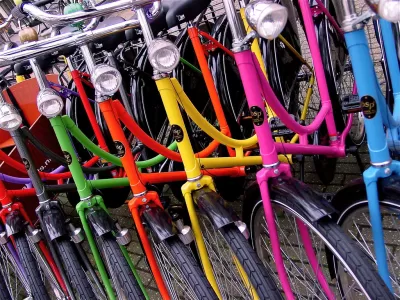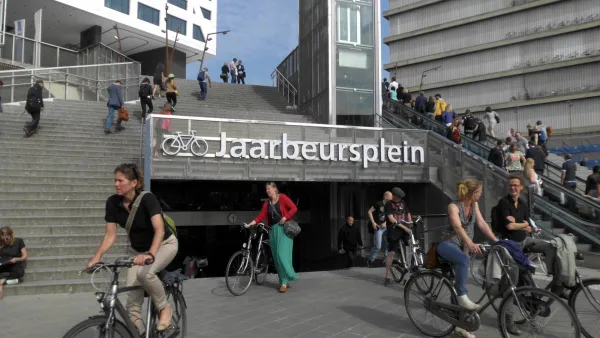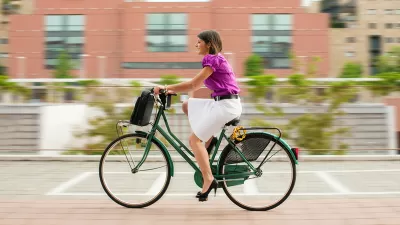Most bikers are white and have a college degree. A recent article examines the Baltimore Bike Experience as an example of the types of programs that could expand the use of biking into other parts of the city, among other benefits.

“Of the few workers in Baltimore who commute by bike, a disproportionate share -- about 87 percent -- are white, according to aggregated five-year estimates by the Census,” reports J.B. Wogan. Moreover, “[more] than three-quarters have a bachelor's degree or higher. In contrast, the overall population of city workers is 39 percent white and about one-third have a bachelor's degree.”
Wogan uses the imbalance in bike use to examine cases like Baltimore Bike Experience, a non-profit that uses bicycles as a youth education tool, but which also have the potential to expand the use of bikes into neighborhoods and populations that haven’t yet embraced the alternative more of transportation. Says Wogan, “Youth bike programs could lead to a higher percentage of city bike commuters, but to achieve large-scale change, the clubs would likely need to expand biking to demographic groups that historically haven't embraced biking.”
Groups like Baltimore Bike Experience could also be attractive to policymakers, according to Wogan, for their job training benefits. “'Bicycle repairer' ranks among the top 85 growing occupations in the next 10 years, according to a 2013 analysis by the U.S. Bureau of Labor Statistics. The nation will add about 2,700 bike mechanics by 2022, an increase of about 25.1 percent from 2012, the bureau predicted.”
FULL STORY: Can Cities Change the Face of Biking?

Planetizen Federal Action Tracker
A weekly monitor of how Trump’s orders and actions are impacting planners and planning in America.

Map: Where Senate Republicans Want to Sell Your Public Lands
For public land advocates, the Senate Republicans’ proposal to sell millions of acres of public land in the West is “the biggest fight of their careers.”

Restaurant Patios Were a Pandemic Win — Why Were They so Hard to Keep?
Social distancing requirements and changes in travel patterns prompted cities to pilot new uses for street and sidewalk space. Then it got complicated.

Platform Pilsner: Vancouver Transit Agency Releases... a Beer?
TransLink will receive a portion of every sale of the four-pack.

Toronto Weighs Cheaper Transit, Parking Hikes for Major Events
Special event rates would take effect during large festivals, sports games and concerts to ‘discourage driving, manage congestion and free up space for transit.”

Berlin to Consider Car-Free Zone Larger Than Manhattan
The area bound by the 22-mile Ringbahn would still allow 12 uses of a private automobile per year per person, and several other exemptions.
Urban Design for Planners 1: Software Tools
This six-course series explores essential urban design concepts using open source software and equips planners with the tools they need to participate fully in the urban design process.
Planning for Universal Design
Learn the tools for implementing Universal Design in planning regulations.
Heyer Gruel & Associates PA
JM Goldson LLC
Custer County Colorado
City of Camden Redevelopment Agency
City of Astoria
Transportation Research & Education Center (TREC) at Portland State University
Camden Redevelopment Agency
City of Claremont
Municipality of Princeton (NJ)





























